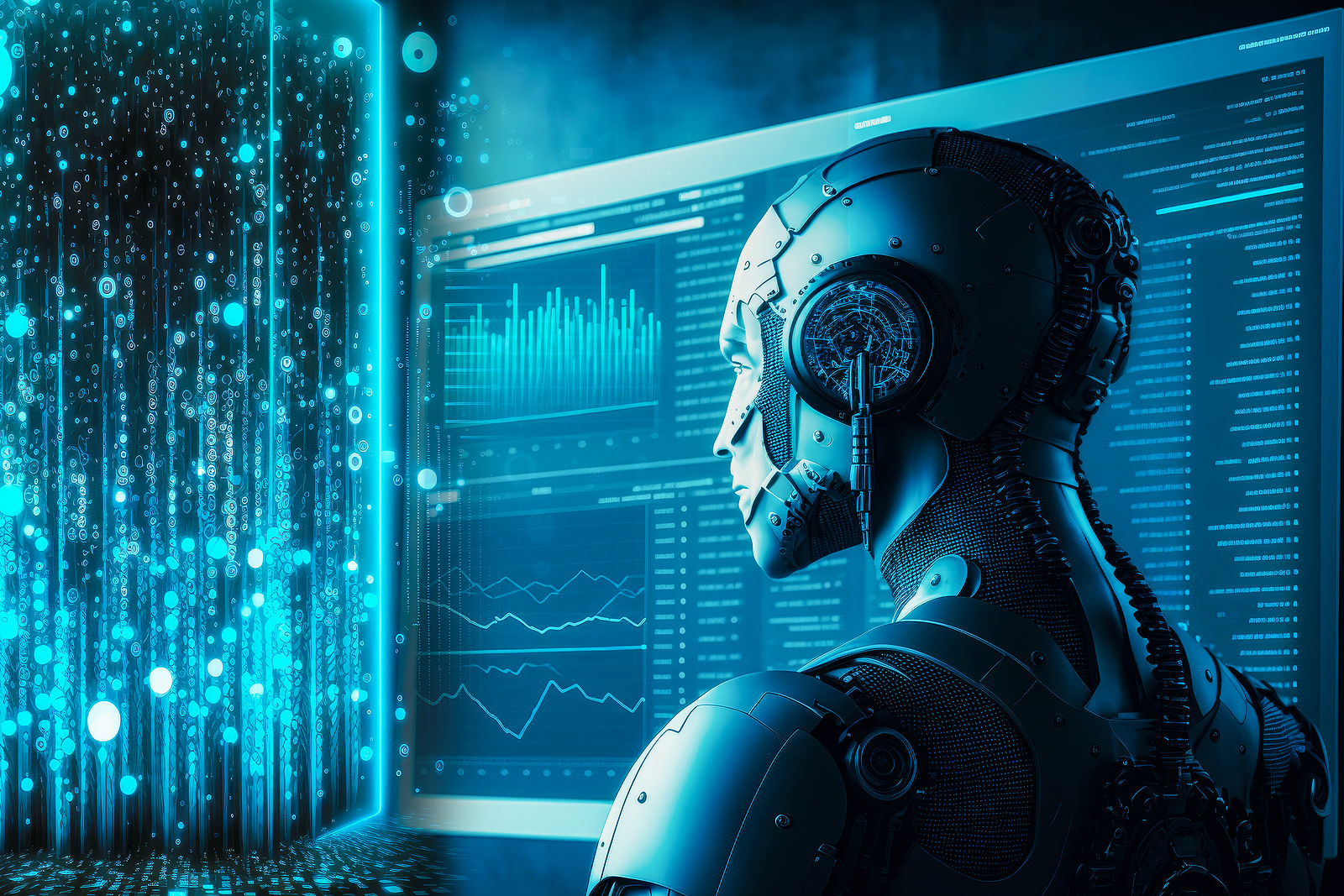Artificial Intelligence (AI) continues to shape the world at an unprecedented pace, and 2024 promises to be a defining year for its evolution. AI is becoming a key driver of innovation across industries, transforming everything from healthcare to finance, education, entertainment, and beyond. As AI technologies advance, they are also raising questions about ethical use, workforce disruption, and societal impact. In this article, we’ll explore what we can expect from AI in 2024, focusing on emerging trends, potential challenges, and the profound transformations that lie ahead.
Generative AI: More Sophisticated and Accessible
Generative AI has made headlines in recent years, especially with models like OpenAI’s GPT-4, which can create human-like text, images, and even code. In 2024, we can expect these generative models to become even more sophisticated, efficient, and accessible to a broader range of users and industries.
- Text Generation: GPT-4 and similar models have already revolutionized content creation, from marketing copy to legal documents. The next generation of language models will likely offer more refined control over tone, style, and context, making them invaluable tools for professionals in diverse fields. Expect to see even more integration into daily workflows, such as drafting legal contracts, writing reports, or generating customer responses.
- Multimodal Models: AI systems capable of processing and generating multiple types of data (text, images, videos, and audio) will see significant advancement. Models that can seamlessly interpret both visual and textual data—like generating detailed descriptions of images or creating images based on textual descriptions—will open up new creative possibilities in industries like design, advertising, and entertainment.
- Low-Code/No-Code AI: Another trend to watch is the democratization of AI through low-code or no-code platforms. By 2024, more businesses and individuals will be able to build and deploy AI models without requiring extensive technical expertise. This will empower smaller businesses to leverage AI for automation, analytics, and decision-making processes.
AI in Healthcare: Enhanced Diagnostics and Personalized Medicine
Healthcare is one of the sectors poised for massive disruption by AI in 2024. AI’s ability to process vast amounts of data quickly and accurately will lead to improved diagnostics, personalized treatments, and operational efficiencies in healthcare systems.
- AI-Powered Diagnostics: AI algorithms will increasingly assist doctors in diagnosing diseases more accurately and at earlier stages. AI systems trained on medical imaging data can detect abnormalities such as tumors, fractures, or cardiovascular issues with greater precision. By 2024, we can expect AI to be more widely adopted in radiology, pathology, and dermatology, aiding in faster and more accurate diagnoses.
- Personalized Medicine: AI will play a pivotal role in the growth of personalized medicine, tailoring treatments based on individual genetic, lifestyle, and environmental factors. Machine learning algorithms can analyze genetic data and medical histories to predict how a patient might respond to certain treatments, leading to more effective and individualized healthcare solutions.
- Operational Efficiencies: Beyond diagnostics and treatment, AI will continue to enhance the operational side of healthcare. AI can streamline administrative tasks such as scheduling, billing, and record-keeping, reducing the burden on healthcare providers and improving patient care.

AI in Autonomous Systems: Advancing Robotics and Transportation
Autonomous systems, including self-driving cars, drones, and robots, are another area where AI is set to make substantial progress in 2024.
- Self-Driving Cars: While fully autonomous vehicles are still in development, 2024 will see advancements in AI-driven automotive technology. We can expect improvements in Level 3 (conditional automation) and Level 4 (high automation) vehicles, which allow for more hands-off driving in certain conditions. AI systems will continue to refine their ability to navigate complex environments, avoid obstacles, and improve safety through real-time data analysis.
- Robotics in Manufacturing and Logistics: AI-powered robots will become more adept at performing tasks that require dexterity and precision. In manufacturing, AI-driven robots can handle complex assembly processes, while in logistics, AI-powered drones and autonomous vehicles can streamline last-mile delivery operations. In 2024, expect to see robots playing a larger role in industries like warehousing, agriculture, and construction.
- AI in Public Transportation: Autonomous AI systems will continue to reshape public transportation with the integration of self-driving buses, trains, and shuttle services in urban areas. AI-driven traffic management systems will also enhance efficiency by optimizing routes, reducing congestion, and improving energy consumption.
AI for Climate Change: Innovations in Sustainability
As the world grapples with the challenges of climate change, AI will increasingly be used as a tool to help mitigate its effects. In 2024, we can expect AI to play a critical role in sustainability efforts, helping industries reduce their carbon footprint, optimize energy use, and improve resource management.
- AI in Energy Management: AI can optimize energy consumption in smart grids, buildings, and cities by analyzing data in real-time to predict energy demand and adjust usage accordingly. AI-driven energy management systems can also integrate renewable energy sources like solar and wind power more effectively, improving efficiency and reducing emissions.
- Environmental Monitoring: AI-powered systems can monitor ecosystems, track deforestation, predict natural disasters, and analyze the impacts of climate change. AI-driven satellite imagery and sensors can provide valuable data on environmental conditions, helping governments and organizations make informed decisions about conservation and disaster response.
- Sustainable Agriculture: AI will also play a role in promoting sustainable agriculture by optimizing crop yields, reducing water waste, and minimizing pesticide use. AI-powered drones and sensors can monitor soil health, weather conditions, and plant growth in real-time, allowing farmers to make data-driven decisions that improve sustainability.
Ethical AI: Addressing Bias, Privacy, and Accountability
As AI continues to evolve, so do concerns about its ethical use. In 2024, the focus on ethical AI will intensify as governments, businesses, and organizations work to address issues such as bias, privacy, and accountability.
- Bias and Fairness: AI systems are only as good as the data they are trained on, and biased data can lead to biased outcomes. In 2024, we can expect more efforts to develop AI systems that are fair, transparent, and free from discriminatory practices. Organizations will prioritize bias detection and mitigation strategies, ensuring that AI applications are equitable and inclusive.
- Data Privacy: AI systems rely heavily on data, raising concerns about how that data is collected, stored, and used. In 2024, expect to see stronger regulations around data privacy, with governments imposing stricter guidelines on how AI can handle personal information. AI systems will need to be designed with privacy-by-design principles to ensure that data is protected.
- AI Accountability: As AI becomes more integrated into critical decision-making processes, the question of accountability will take center stage. In 2024, organizations will be held more accountable for the decisions made by their AI systems. There will likely be a push for more transparency in how AI systems operate, including the development of explainable AI (XAI), which allows users to understand how an AI system arrived at a particular decision.
Workforce and AI: Reshaping the Future of Jobs
The rise of AI has sparked debates about its impact on the workforce. While AI will undoubtedly automate certain jobs, it will also create new roles that require skills in AI development, maintenance, and oversight.
- Job Automation: In 2024, more routine and repetitive tasks in industries like manufacturing, customer service, and retail will be automated by AI. However, this will also free up human workers to focus on more complex, creative, and strategic tasks.
- Reskilling and Upskilling: As AI transforms the job market, there will be a growing emphasis on reskilling and upskilling the workforce. In 2024, businesses will invest in training programs to help employees develop the skills needed to work alongside AI systems. AI itself may also be used to deliver personalized learning experiences, helping workers acquire new competencies quickly and efficiently.
Conclusion
AI in 2024 will bring about transformative changes across industries, with advancements in generative AI, healthcare, autonomous systems, sustainability, and ethical considerations. While AI offers immense potential for innovation and progress, it also raises critical questions about privacy, bias, and the future of work. By staying ahead of these trends and addressing the associated challenges, businesses and individuals can harness the full potential of AI to drive positive change in the years ahead.
Skyline IT Services Disclaimer: This document is intended to offer general information and guidance. It is recommended that you consult with your internal technical and / or legal team to review all details, application and / or policies before implementation or adaptation. This document is provided “as is,” without any warranties of any kind. Skyline IT Services disclaims any liability for loss or damage arising from reliance on the information contained in this document.



